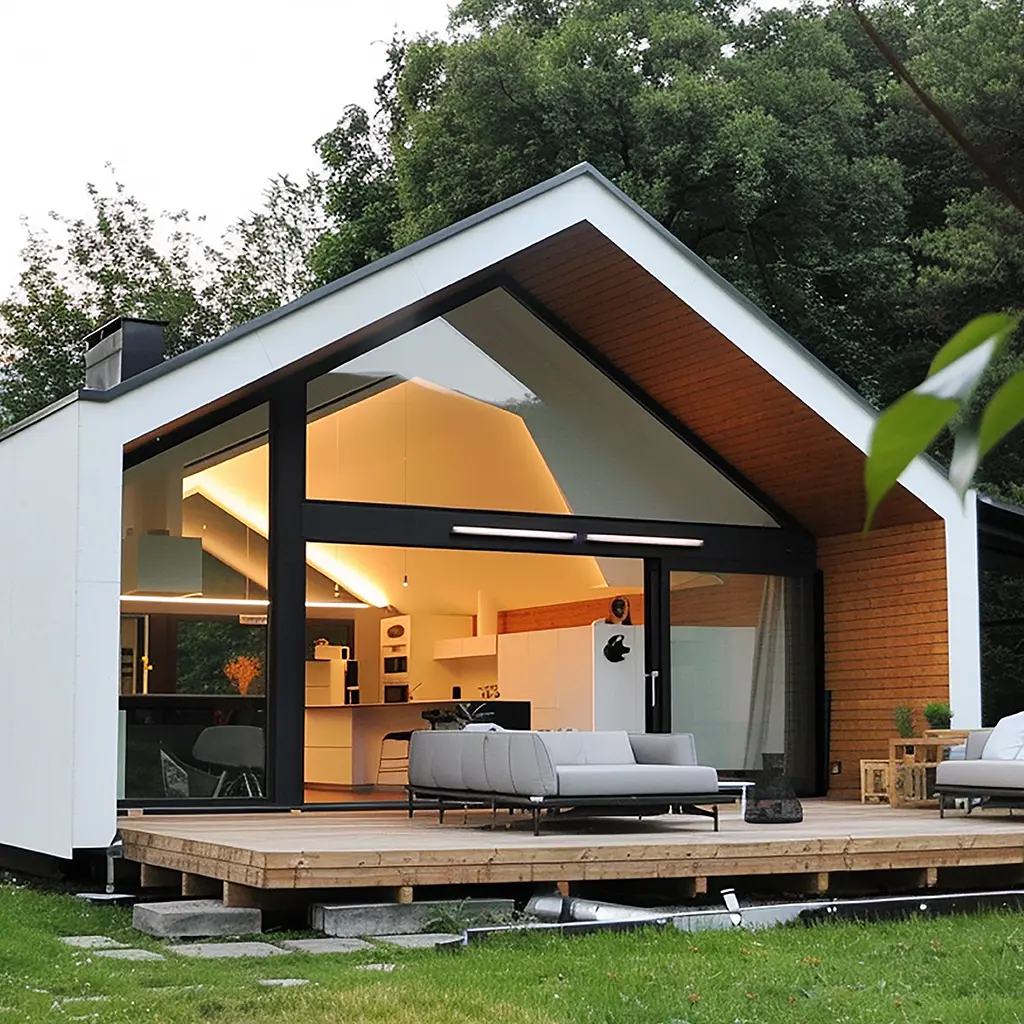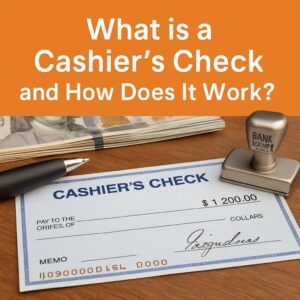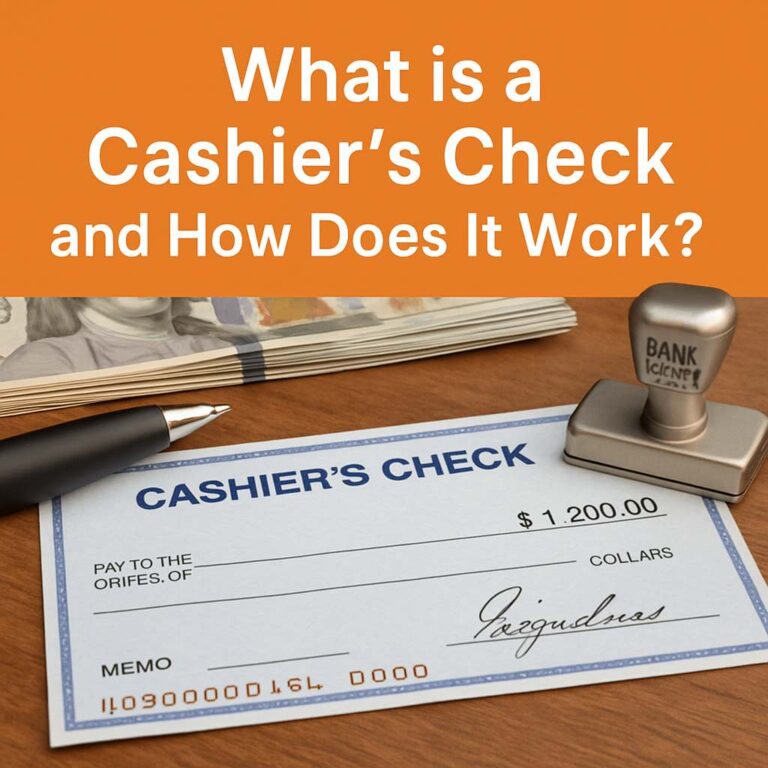When it comes to real estate investing, many think of traditional homes, commercial buildings, or even condos. But what about mobile homes? Are mobile homes a good investment? That’s a question more investors are asking as housing costs soar and affordable living becomes a more critical need in today’s market.
In this guide, we’ll explore everything you need to know about mobile homes as an investment, from costs and benefits to strategies and expert tips. We’ll answer the key question upfront and delve into why you might want to consider this often-overlooked investment option.
What is a Mobile Home?
Let’s start with a simple mobile home definition. A mobile home is a type of manufactured home built in a factory and transported to a specific location. Unlike traditional homes, which are built on-site from the ground up, mobile homes are designed for mobility. They’re typically placed in parks or on leased land, although some are placed on private property.
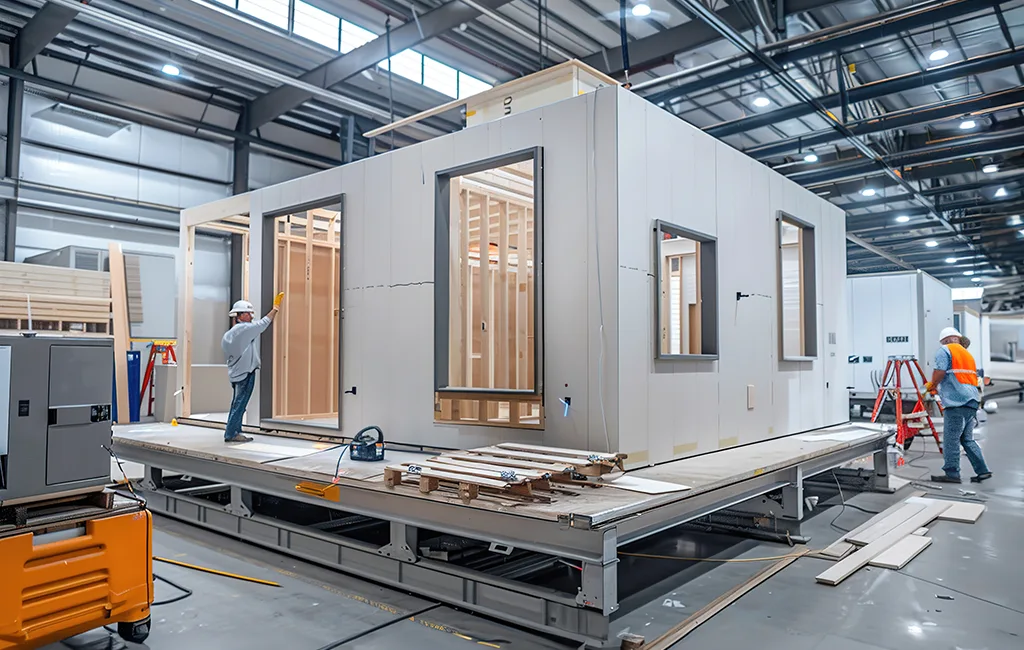
While they used to be viewed as basic or low-cost alternatives to conventional houses, modern mobile homes offer many of the same amenities. They can range from single-wide models (narrower and smaller) to double-wide models, which offer more space and comfort. However, they’re not considered real estate in the same way traditional homes are — which brings us to the next important distinction.
Mobile Homes vs. Traditional Real Estate Investments
Investing in mobile homes differs from traditional real estate in several key ways:
Real Property vs. Personal Property
Traditional homes are considered real property, meaning the land and home are a single asset. Mobile homes, however, are typically classified as personal property, like cars or RVs, unless they are permanently affixed to land you own.
This classification affects taxation, insurance, and financing. Real property offers tax benefits like mortgage interest deductions, while mobile homes usually have lower taxes but may not qualify for these deductions unless tied to land. Financing can also be trickier for mobile homes, often requiring chattel loans with higher interest rates.
Depreciation vs. Appreciation
Traditional homes typically appreciate over time, gaining value as the housing market improves. This makes them attractive for long-term investment. Mobile homes, however, tend to depreciate, similar to vehicles. However, if the land is owned, it can still appreciate, providing some balance in value. This makes mobile homes more about generating cash flow through rental income than long-term appreciation.
Cost Barriers
Traditional real estate requires significant upfront capital, including a large down payment, closing costs, and often renovation expenses. This can be a barrier for many investors. Mobile homes, on the other hand, have lower entry costs, making them more accessible for beginner investors or those with limited capital. Even when buying land for the home, the overall cost remains much lower than purchasing a traditional house.
Key Factors to Consider Before Investing in Mobile Homes
Before investing in mobile homes, it’s important to understand how they are classified. Is a mobile home considered real estate? That depends. Mobile homes are typically considered personal property unless they are permanently attached to land, in which case they can be reclassified as real property. This distinction affects how the home is taxed, insured, and financed.
Other Critical Factors Include
Land Ownership: Are you planning to buy a mobile home park to rent out spaces, or will you purchase individual homes to rent out? Owning the land adds long-term value, but managing a park comes with additional responsibilities like upkeep, tenant management, and infrastructure maintenance.
Financing: Securing financing for mobile homes can be challenging, especially if the home is considered personal property. Many lenders hesitate to provide traditional mortgages for mobile homes on rented land. However, if the home is permanently affixed to owned land, financing options like traditional mortgages may be available.

Market Demand: The demand for mobile homes is often tied to the local need for affordable housing. In regions where housing costs are high or inventory is limited, mobile homes can fill a critical gap. However, demand can vary significantly by location, so conducting thorough market research is essential to ensure profitability.
Understanding these factors will help you determine whether investing in mobile homes aligns with your financial goals and whether it offers the right balance of cost, effort, and return on investment.
Are Mobile Homes a Good Investment?
Yes, mobile homes can be a good investment for several reasons:
Affordability: Mobile homes have a lower price point than traditional homes, making them attractive to buyers and renters seeking affordable housing. For investors, this means
lower entry costs and the chance to cater to a growing market of budget-conscious tenants.
Steady Income: Renting out mobile homes or owning a mobile home park can provide a consistent stream of income. You can rent the mobile home itself or charge rent for the land, even if the tenant owns the home, creating reliable passive income.
High Demand: With the rising demand for affordable housing, mobile homes are appealing to various demographics, including retirees, young families, and those on fixed incomes, creating a strong and growing rental market.
Less Competition: The mobile home market is less saturated than traditional real estate, giving investors a better chance to find lucrative opportunities without the heavy competition seen in traditional home investments.
Tax Benefits: If a mobile home is classified as real property, investors can enjoy many of the same tax benefits as traditional real estate, such as writing off depreciation, operating costs, and possibly mortgage interest.
Overall, mobile homes present a lower-cost, potentially high-reward investment opportunity with steady income potential, especially in areas where affordable housing is in demand.
How Much Do Mobile Homes Cost?
Understanding the cost of mobile homes is crucial when deciding whether this type of investment suits your financial goals. Mobile home prices vary widely depending on several factors, including whether the home is new or used, its size, and any additional features or amenities.
New Mobile Homes
A new mobile home can range in price from $40,000 to over $100,000, depending on the model and features. The two main types of mobile homes are single-wide and double-wide. Single-wide homes are narrower and more affordable, typically on the lower end of the price scale, while double-wide homes offer more space and are priced higher.
The final cost depends on the size, quality of construction, and customization options such as upgraded appliances, finishes, and additional rooms. A brand-new mobile home with premium features could push the price beyond $100,000, though this is still generally more affordable than traditional homes.
Used Mobile Homes
For those looking to save money, used mobile homes are a more budget-friendly option. Prices can range from $10,000 to $50,000, depending on factors such as age, condition, and location. Older mobile homes might require more repairs or updates, but they come with a much lower upfront cost, making them an attractive option for investors seeking affordable housing solutions. When buying used, it’s essential to factor in the costs of any repairs or improvements that may be necessary to make the home livable or rentable.
Additional Costs
Beyond the price of the home itself, there are several additional costs to consider. If the mobile home is not located in a park, you’ll need to buy or lease land, which can add significantly to the total cost. Additional expenses include utility hookups, transportation of the home, site preparation, and permits required for setting up the home. These costs can vary depending on your location and the complexity of the installation process.
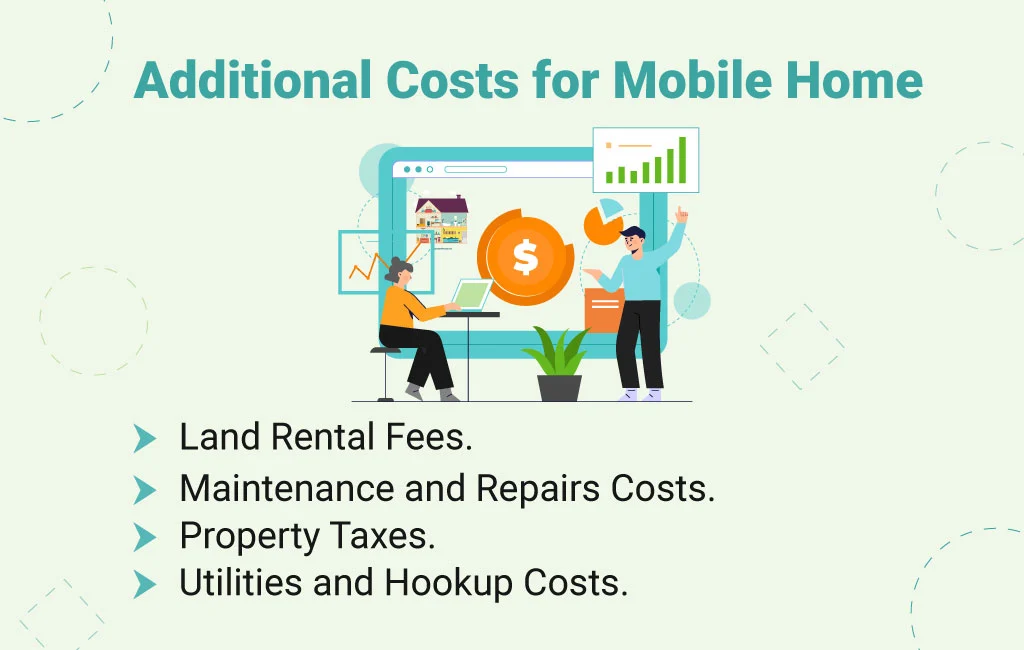
Upside of Investing in Mobile Homes
Investing in mobile homes offers several key advantages, especially when compared to traditional real estate investments:
Lower Purchase Price: Mobile homes come at a much lower price point, making them accessible to investors who may not have the capital needed for traditional properties. This lower cost means less financial risk and a more affordable entry into real estate investing.
Faster Turnaround: Mobile homes are typically quicker to acquire, set up, and rent out compared to traditional properties that often require extensive renovations. This means investors can start generating rental income faster and see a quicker return on investment.
Stable Demand: With the growing shortage of affordable housing, mobile homes are in high demand, especially in regions where housing costs have skyrocketed. This demand provides a steady pool of tenants, ensuring a consistent income stream for investors.
Diversification: If you’re already invested in traditional real estate, adding mobile homes to your portfolio can provide diversification. This helps spread your risk across different property types, reducing the impact of market fluctuations on your overall investment returns.
Strong Cash Flow: Mobile homes offer great potential for generating consistent cash flow. Whether you’re renting out the home itself or charging for the land, this investment can yield steady monthly income with relatively low overhead costs.
Downside of Mobile Home Investments
While mobile homes can be a lucrative investment, there are some important downsides to consider:
Depreciation: Unlike traditional homes, mobile homes usually depreciate over time, similar to vehicles. This loss in value can make it difficult to sell the home for a profit, especially after years of ownership.
Financing Challenges: Securing financing for mobile homes can be more difficult than for traditional homes, particularly if the home is not permanently affixed to land. Lenders often consider mobile homes as personal property, which limits access to standard mortgage options. Investors may face higher interest rates and shorter loan terms with chattel loans, which can cut into profitability.
Maintenance Costs: Mobile homes, while affordable to purchase, can require frequent maintenance, particularly as they age. Older models tend to need more repairs, and costs can add up over time, impacting your return on investment.
Park Fees: If you don’t own the land where the mobile home sits, you’ll need to pay park fees. These fees, charged by mobile home parks for leasing space, can reduce your profit margins, especially if rents in the park rise over time.
Zoning and Regulations: Mobile homes are often subject to stricter zoning laws and regulations than traditional homes, which can complicate both the purchasing process and where the home can be placed. These rules vary by location and may limit your investment opportunities.
Best Strategies for Mobile Home Investment
If you’re considering mobile home investments, here are five proven strategies to maximize your returns:
Buy and Hold: This is one of the most straightforward approaches. Purchase mobile homes and rent them out to generate consistent monthly income. It’s a reliable long-term strategy for investors seeking steady cash flow, particularly in areas with high demand for affordable housing.
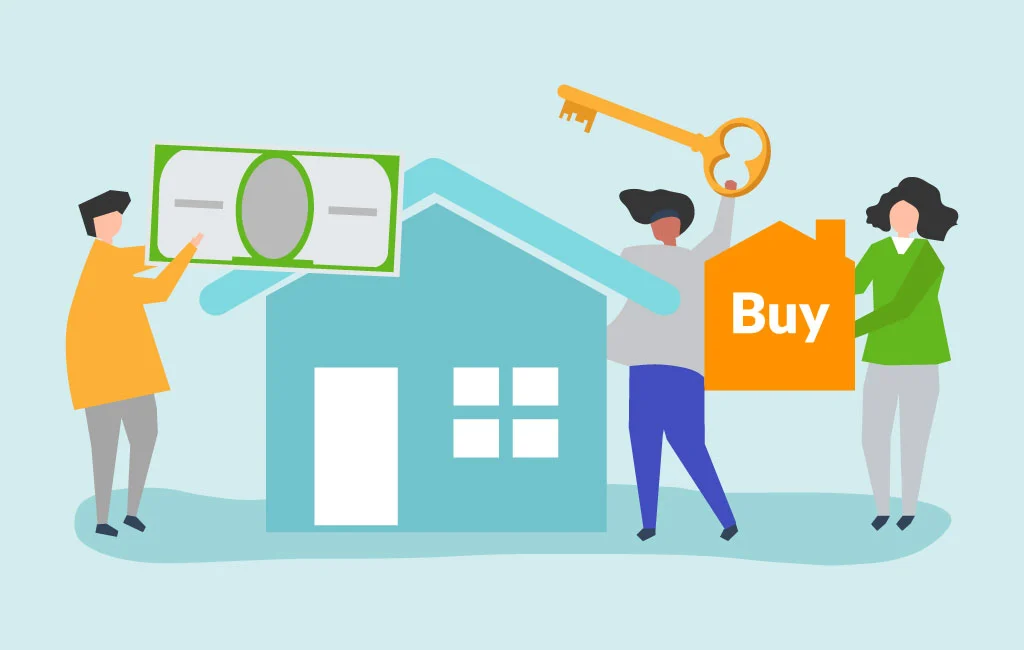
Fix and Flip: For those with renovation skills, buying older mobile homes, fixing them up, and selling them for a profit can be lucrative. This strategy works best in high-demand areas where renovated homes can command higher prices.
Park Ownership: Owning an entire mobile home park allows you to rent out spaces to individual mobile homeowners, creating passive income. While it offers excellent profit potential, park ownership requires more management, including maintaining common areas and handling tenant concerns.
Lease Land: If you don’t want the responsibility of owning and managing homes, purchasing land and leasing it to mobile homeowners is another option. You generate rental income from the land itself, without the added costs and maintenance associated with the mobile homes.
Wholesaling: This strategy involves finding undervalued mobile homes, securing them under contract, and selling the contract to another buyer for a profit. It’s a fast-paced, lower-risk approach that doesn’t require as much capital upfront.
Each strategy caters to different levels of investment experience and risk tolerance, but all offer the potential for solid returns in the right market.
Challenges and Solutions of Mobile Home Investments
Investing in mobile homes presents some unique challenges, but with the right approach, they can be managed effectively:
Depreciation: Unlike traditional homes, mobile homes typically lose value over time, making it harder to build equity.
Solution: Focus on buying homes at a discount in areas with high rental demand. Prioritize cash flow from renting the home or the lot, rather than relying on property appreciation.
Maintenance: Older mobile homes often require more upkeep and repairs, which can increase long-term costs.
Solution: Conduct detailed inspections before buying to identify potential issues. Allocate part of your budget specifically for ongoing maintenance and repairs to keep the property in good condition.
Financing: Obtaining financing for mobile homes can be more difficult compared to traditional homes, as many lenders view them as personal property rather than real estate.
Solution: Seek out lenders who specialize in mobile home financing, or consider forming partnerships with other investors to pool resources and reduce financing challenges.
Zoning and Regulations: Some areas have strict zoning laws that limit where mobile homes can be placed, complicating the purchase and placement process.
Solution: Research local zoning regulations thoroughly before buying, and work with a real estate agent experienced in mobile home investments to navigate these restrictions and ensure compliance.
Expert Insights and Predictions of Investments
Real estate experts are increasingly recognizing mobile home investments as a growing opportunity, particularly in light of the ongoing demand for affordable housing. As the traditional housing market becomes less accessible, mobile homes are positioned to fill a critical gap.

Rising Demand for Affordable Housing
The skyrocketing prices of traditional homes have made homeownership out of reach for many. This has driven up demand for affordable alternatives, and mobile homes are emerging as a solution.
Experts predict that mobile homes will play an increasingly important role in providing budget-friendly housing options for low-income families, retirees, and younger generations. Investors who recognize this trend are well-positioned to benefit from the expanding market.
Demographic Shifts
Two key demographic groups—retirees and millennials—are showing heightened interest in mobile homes. Retirees are seeking downsized, low-maintenance living arrangements that offer financial flexibility. Millennials, many of whom face high student debt and rising rent prices, are also turning to mobile homes as an affordable way to achieve homeownership. These demographic shifts are expected to fuel demand for mobile homes, making them a stable long-term investment.
Technological Advances
The quality and appeal of mobile homes have significantly improved over the years. Thanks to advances in construction techniques and materials, modern mobile homes are more durable, energy-efficient, and aesthetically pleasing. Many now come equipped with features comparable to traditional homes, making them more attractive to a wider range of renters and buyers.
Investment Stability
In uncertain economic times, mobile homes have proven to be a relatively stable, recession-resistant asset. Their affordability makes them less vulnerable to market fluctuations, and the consistent demand for low-cost housing provides a reliable income stream for investors. As housing challenges persist, mobile homes are increasingly viewed as a secure, long-term investment option.
Experts agree that mobile home investments offer both stability and growth potential, especially in today’s unpredictable real estate market.
To Wrap Up
So, are mobile homes a good investment? For the right investor, absolutely. They offer an affordable entry point into the real estate market, a steady income stream, and diversification. However, like any investment, they come with challenges — from depreciation to financing difficulties.
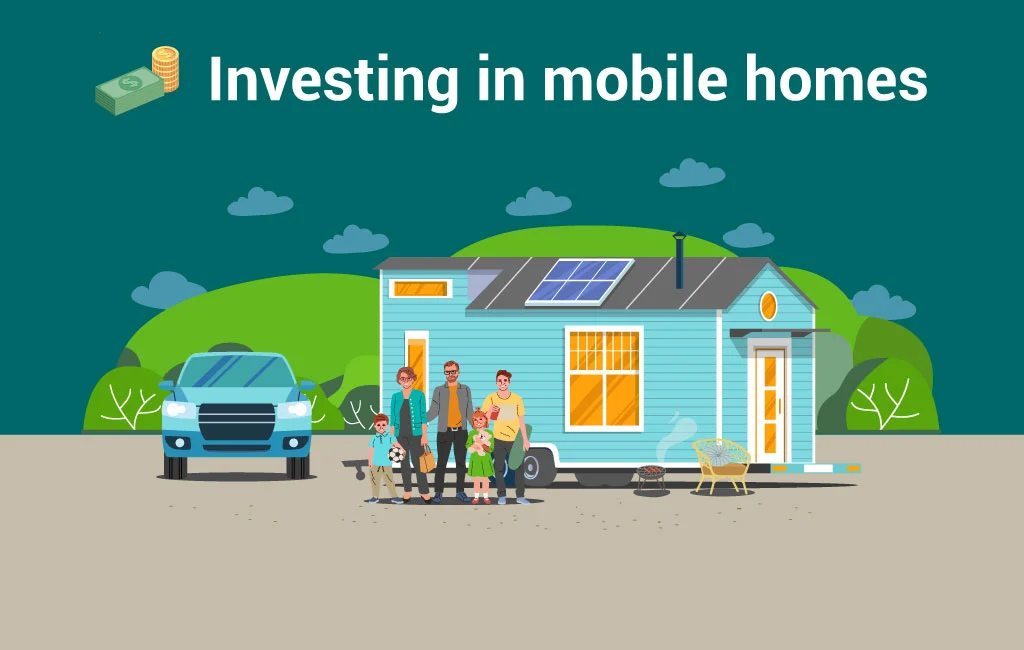
By understanding the unique aspects of mobile home investments, conducting thorough research, and implementing smart strategies, you can make mobile homes a profitable addition to your investment portfolio. As housing demand continues to rise, especially for affordable options, mobile homes may be the perfect opportunity for savvy investors looking to tap into an underutilized market.


